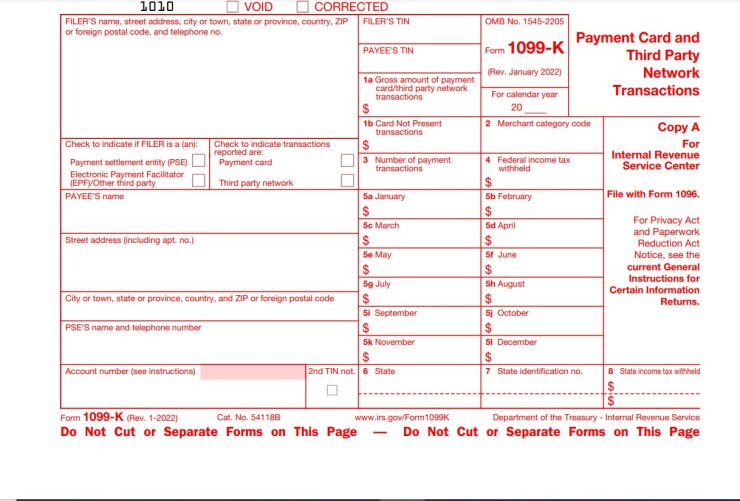The lowering of the Form 1099-K threshold from $20,000 to $600 will not only produce millions more forms to be sent to taxpayers, but could also prompt many of them to abandon online marketplaces and gig economy jobs, according to a new survey.
The survey, released Tuesday by the tax software Avalara, comes a week after the Internal Revenue Service announced it would
The Avalara survey found that, as a result of the lower threshold, 83% of marketplaces expect sellers to leave their platforms, and a majority (55%) of marketplace sellers and gig workers are reconsidering online selling and on-demand work. Nearly all (90%) of the marketplaces polled believe sellers on their platform are prepared for changes, and a majority (60%) of marketplaces believe that third-party sellers on their platforms are "very" prepared for proposed changes. In contrast, 51% of marketplace sellers indicated they're ready to comply with proposed rule changes.

The IRS is expected to receive 44 million 1099-K forms (up from 14 million) after the threshold is lowered, according to
"Our survey data reveals the need for proactive measures on the part of marketplace sellers, on-demand workers, and online marketplaces to determine how best to comply with a revised 1099-K digital payments threshold," said Scott Peterson, vice president of U.S. tax policy at Avalara, in a statement. "Gig workers and sellers anticipating significant impacts from the proposed IRS changes should seek advisory assistance from a bookkeeper or tax/accounting professional around newfound reporting complexity prior to making big decisions. And businesses, bookkeepers and accounting firms can access cloud-based automation solutions that scale with reporting and form preparation and distribution demands associated with a decreased 1099-K threshold."
Tax and accounting professionals will probably be top of mind for marketplace sellers struggling to deal with the upcoming reporting requirements. Nearly half (46%) plan to contact their bookkeeper, tax professional, or accountant to manage the proposed 1099-K rules. Other sellers (40%) intend to figure out the rules on their own, and an equal number plan to reach out to others in the gig/merchant community for guidance.
Only one-third (33%) of the sellers polled said they will look to marketplaces for guidance around the proposed rules. Over half (60%) of marketplaces have already told sellers about the proposed 1099-K reporting requirements, and 15% have gone further to advise sellers around compliance. Two-thirds (65%) of marketplace platforms intend to deliver 1099-K forms to sellers that meet a new threshold via automated solutions, according to the survey.





